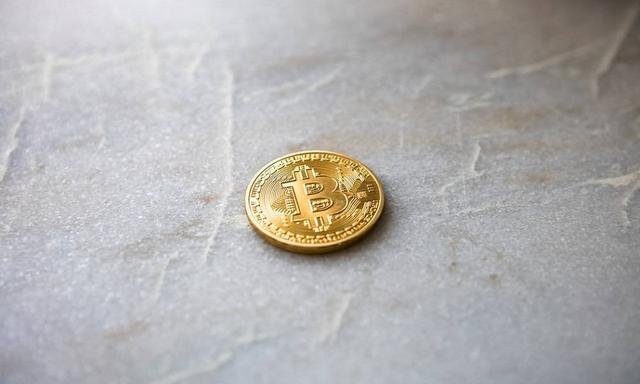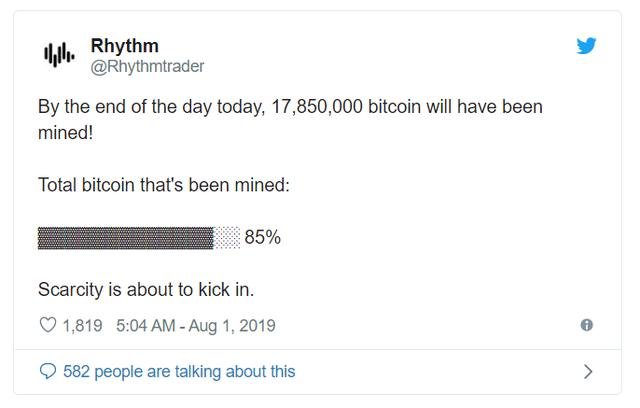Encrypted currency enthusiasts announced on Twitter Wednesday that more than 17.85 million bitcoins had been dug up. That means 85% of Bitcoin's total of 21 million has been consumed. Nevertheless, the remaining 15% will be released slowly over the next 100 years.
85% of the bitcoins have been dug up
The new bitcoin blocks on the Bitcoin Network represent the new coins being dug up, and about every 10 minutes new bitcoins will be dug up. Currently, 12.5 bitcoins are produced per block, but by May 2020, that number will be reduced to 6.25, or "halved". Halving mining incentives is done every four years until only a small amount of bitcoin is produced in each block.

Nakamoto, the creator of Bitcoin, set the supply cap for his invention. Unless there is a forcible change in the total amount of coins, the number of bitcoins in circulation will never exceed 21 million (interestingly, due to unexpected losses, the actual number of bitcoins is less than 21 million).
Mr. Nakamoto has never personally explained why he chose the 21 million figure or the concept of a supply cap, so there are many speculations.
Dan Held, co-founder of Interchange and former Ubuntu founder, said the supply cap was set because Nakamoto wanted to make Bitcoin a hedge product.
Held said that Nakamoto had talked about the commercial status of Bitcoin, so he believed that Nakamoto preferred to use scarcity to give Bitcoin value, making it a hedge.
Held also argues that Bitcoin plans to become a substitute for banks rather than a new version of Visa, so Nakamoto wrote the headlines in coinbase of the Genesis Block. He believes that the total of 21 million, the 10-minute block time, and the 1MB block all support his view.
As for whether Nakamoto wants Bitcoin to be a hedge or a payment tool, there are many debates. We may never be able to wait for Nakamoto's standard answer.
Total Bitcoin Change? Don't even think about it.
It is noteworthy that some people have begun to discuss how to increase the total amount of bitcoins. According to Babbitt, at this year's mysterious China Bencong Round Table, participants discussed the possibility of increasing the total amount.
Information about the meeting was limited, even the list of participants was unknown, and the venue was somewhere in Mexico. However, Fold's Matt Luongo tweeted that some people had raised questions about the viability of deflationary bitcoins.
Luongo explained that when most of the miners'income comes from transaction costs, the Bitcoin economy may become "unstable". With fewer and fewer transactions on bitcoin Layer-1 (protocol layer other than lightning networks and side chains), he says, the main chain of bitcoin is vulnerable to block reorganization.
Therefore, he mentioned the possibility of lifting the long-standing supply constraints of BTC and "allowing the security of bitcoin block chains at the expense of all holders".
However, the proposal remains in the proposal phase, and the Bitcoin community will not allow this to happen.